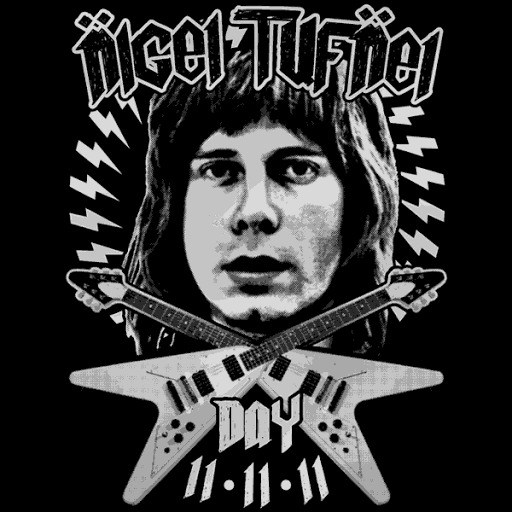https://www.youtube.com/watch?v=iZgmIx3FmKc
We’ve got this!

Tales of True Adventure for Rugged Men Not Unlike Yourself
https://www.youtube.com/watch?v=iZgmIx3FmKc
We’ve got this!
We can all relate.
“I remember being in a car on Neil’s ranch with him when CDs first came out, and he was lamenting how the sound was so damaged. He was pretty horrified by it, and I was kind of amazed. He really made me aware of the damage the fidelity had taken.
“I don’t have Neil’s ears to really get as bothered as he is by it,” Lofgren says, “but it is an extraordinary difference when you know what you’re doing and you get the sound right.”
This week’s obsession is the fantastic article The Pagan Mechanic Rides Again: Neil Young’s Adventures on the Hi-Res Frontier in Wired.
Stuff I learned, down various internet wormholes, which you all probably know already:
A CD holds about 600-700 MB of data. At the time the format was invented, that was 50X as much as a hard drive, so it seemed incredible. But music takes a lot of memory. The goal was to compress an album (say, 60 minutes of audio) onto that CD. That can be done if you sample at 44.1kHz (roughly twice the max frequency of adult human hearing) and limit the bit depth to 16 bits per sample. That gives a maximum dynamic range of 96dB between the quietest and loudest sounds – thought to be decent enough for the human ear.
A good way to start a fight among audiophiles is to suggest that we don’t need anything better than 44.1kHz/16bit. Many people insist that they can hear a difference; double blind studies do not necessarily bear this out. This blogging nerd set up a great test including the Goldberg Variations, to see if audiophiles could tell the difference between 24 bit and 16 bit. They pretty much couldn’t.
When mp3’s came along, they allowed us to compress musical data by a factor of ten. A 30 megabyte, three minute CD song becomes a 3 megabyte mp3 abomination. It sucks the life out of the music!
Neil Young says so!
His attempt at a hi-res audio player – Pono – is now wreckage in the compression and loudness wars won by lo-res streaming like Spotify. He wrote a book about it: To Feel The Music: A Songwriter’s Mission to Save High-Quality Audio.
But lo! Nowadays since we’ve all got bandwidth coming out our ears, with cloud storage and whatnot, audiophiles are excited about bigger, uncompressed audio files.
– wav: 10 MB per minute
– aiff: 10 MB per minute
– FLAC: 5 MB per minute
– DSD: 40 MB per minute
“DSD [Direct Stream Digital] has become the audiophile standard, higher than the 96-kHZ/24-bit FLAC-based audio of Tidal Hi-Fi, and even higher than the 192-kHZ/24-bit FLAC favored by Neil Young Archives.”
Listen to the inventor of DSD! You won’t understand a single word! Noise shaping and pulse-code modulation! That looks like a damn oscilloscope behind him so you know he doesn’t fuck around:
You can now obtain DSD files of a few of your favorite artists. And Amazon and Apple are getting into the hi – res game. To play hi-res files back, you’ll probably need at least a high quality DAC (digital audio recorder).
The company Qobuz has hi-res Replacements!
Itrax has other power pop like Mozart, Stravinsky, and Glenn Gould.
Mr. Young, in the meantime, has set up the cool steampunk, idiosyncratic, wonderful $1.99-per-month Neil Young Archives where you get what the artist intended. I’ve been enjoying my time there.

How was this already nine years ago?
Somehow never heard Billy Bragg’s original until the other day. Early twenties suck as bad as the teenage years, just for different and more complex reasons.
Sorry-not-sorry for providing lyrics …
I was twenty one years when I wrote this song
I’m twenty two now, but I won’t be for long
People ask me when will you grow up to be a man
But all the girls I loved at school
Are already pushing prams
I loved you then as I love you still
Though I put you on a pedestal,
They put you on the pill
I don’t feel bad about letting you go
I just feel sad about letting you know
I don’t want to change the world
I’m not looking for a new England
I’m just looking for another girl
I don’t want to change the world
I’m not looking for a new England
I’m just looking for another girl
I loved the words you wrote to me
But that was bloody yesterday
I can’t survive on what you send
Every time you need a friend
I saw two shooting stars last night
I wished on them but they were only satellites
It’s wrong to wish on space hardware
I wish, I wish, I wish you’d care
I don’t want to change the world
I’m not looking for a new England
I’m just looking for another girl
I don’t want to change the world
I’m not looking for a new England
I’m just looking for another girl
Looking for another girl
Looking for another girl
Looking for another girl
I may watch this a few times today.
John Oliver discusses the long week of US presidential election results, including Donald Trump’s various attempts to make the election appear illegitimate, and a historic win for Joe Biden and Kamala Harris.
… but it was a nice run.
I’m considering new careers now that a forced-cough recording app has disrupted my industry.
Porn Star of a Certain Age is definitely on the short list.
Please advise.
I don’t have many skills.
Some algorithm is making sure I see ads for this everywhere I go. I’m sure the flashing light will trigger a previously undiagnosed seizure disorder.
For what ails ya’
If you ever buy used records, you’ve learned that however clean they looked in the store, they sometimes skip or have a little scratch as loud as a gunshot, usually on your favorite song. I’ve used this fix at least five times, and it worked every time, both on skips and loud scratches that run across grooves. (If the scratch runs with the groove, you’re pretty much fucked, as the gentleman in the video points out. ) Using a toothpick is a brililant solution. It can get into a groove just enough to smooth out the edges, but it’s not sharp enough to go deep into the groove and ruin the record. I guess you could ruin it if you pushed hard enough, but gentle pressure fixes the problem.